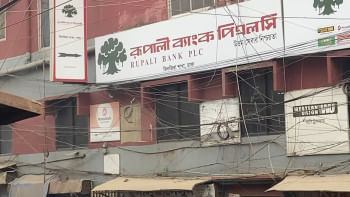How can we ensure discipline in banking sector?

My friend who is an apparel exporter received a call from his Spanish buyer over the weekend. He was told that the buyer who makes large-scale purchases is diverting 40 percent of the orders to Cambodia and Indonesia, showing the cause to be a possible production disruption and shipment delays in Bangladesh. The buyer also enquired how his bank was doing, whether he was able to timely open letters of credit for accessories and settle payments as well as get adequate liquidity support from his bank.
Over the last few years, the overall health of our banking sector deteriorated and there is a possible liquidity crunch in some banks which is leaving a bad impact on good, SME and new borrowers. There is a clear nepotism working in the banking sector -- the regulators supporting the weak and dicey banks more than the strong and reputed ones. Additional liquidity from the central bank is being diverted to the banks owned by specific family or interest group. Increasing bad or doubtful loans is heavily impacting banks' internal cash generation and curbing their ability to extend fresh loans to young or small entrepreneurs.
The World Bank's (WB) recent observation about non-performing loans (NPLs) and its connection to politically motivated lending in Bangladesh is not at all a surprise. Development partners and most stakeholders, have repeatedly warned about the risks of bending banking rules to lend to politically connected special interest groups, which has led to default loans soaring. Experts too have called attention to this issue over the years to no avail.
Consequently, there has been a 20.7 percent increase in NPLs from 2022 to 2023, amounting to a total NPL of Tk 145,633 crore in December 2023, with almost half belonging to state-owned banks. When the present government assumed office in 2009, the NPL figure was Tk 22,481 crore. Over the last one and a half decade, while private commercial banks mushroomed from 30 in 2008-2009 to 43 in 2024, NPLs grew by more than six times. Loans were extended without proper due diligence over risks, lending and recovery rules were bent or relaxed, and the independence of regulatory bodies further compromised all to favour certain politically linked borrowers, many of whom later became defaulters. Meanwhile, no big defaulter has been brought to book also.
A recent WB report rightly pointed out, honest borrowers and businesses are bearing the brunt of the NPL burden, as interest rates continue to rise and ailing banks face liquidity crisis. Despite repeated warnings, no effective measures have been taken to rectify the poor governance, weak market discipline and low capital buffers in the banking sector. Capital adequacy ratio in Bangladesh's banking sector is in fact one of the lowest in South Asia, which means that in the face of unexpected losses, many banks may not have adequate capital to meet their obligations to depositors and creditors. Recent Moody's and S&P downgrades possibly reflect the situation well.
Unfortunately, the effort spent to understate NPLs by using poor accounting and disclosure standards and regulatory forbearance, was absent in the government's initiative to properly address the vulnerabilities of the financial sector. Before we thrust ourselves to a point of no return, the government must heed expert advice and warnings by the WB and other international financial institutions like IMF and put an end to political consideration in lending and default loan recovery. Lastly, authorities must ensure the autonomy of the central bank, not only on paper but in actual terms, upgrade its supervisory and regulatory capacity to fix the problems of the banking sector, and ensure that banks in the country are adhering to internationally accepted prudential guidelines and banking standards.
Without ensuring minimum discipline in the banking sector, I don't think any country can make its growth journey sustainable and financing inclusive. Bangladesh can't be an exception.
The writer is the chairman of Financial Excellence.


 For all latest news, follow The Daily Star's Google News channel.
For all latest news, follow The Daily Star's Google News channel. 



Comments